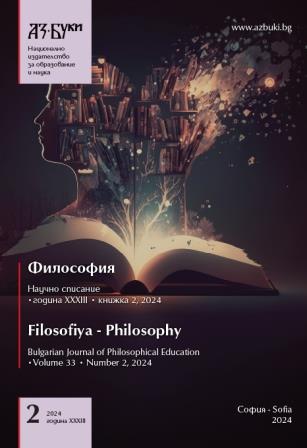The Concept of Transcendental Apperception and its Role in the Second Edition of Kant’s Transcendental Deduction
The Concept of Transcendental Apperception and its Role in the Second Edition of Kant’s Transcendental Deduction
Author(s): Vera LyubenovaSubject(s): Philosophy, History of Philosophy, Epistemology, Ethics / Practical Philosophy, Aesthetics
Published by: Национално издателство за образование и наука „Аз-буки“
Keywords: transcendental apperception; empirical apperception; inner sense; Cogito; intellectual intuition; transcendental deduction; metaphysical deduction
Summary/Abstract: The aim of this article is to trace the meaning that Immanuel Kant assigns to the concept of transcendental apperception and to present its role in the second edition of the Transcendental Deduction in his Critique of Pure Reason. It will be shown that the doctrine of transcendental apperception resolves some problematic features of the theories of consciousness in the traditions of Rationalism and Empiricism. In this regard, Kant’s transcendental apperception will be examined in contrast with the concepts of inner sense (John Locke and David Hume), Cogito (René Descartes), and intellectual intuition (Gottfried Leibniz). This comparative approach will allow us to gain a clearer understanding of the meaning of transcendental apperception. Finally, its role in the justification of the pure concepts of understanding will be considered.
Journal: Философия
- Issue Year: 33/2024
- Issue No: 2
- Page Range: 179-188
- Page Count: 9
- Language: English
- Content File-PDF

